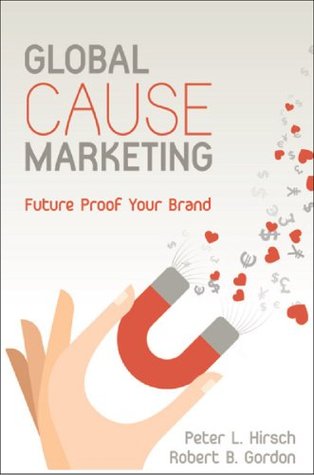Global Cause Marketing: Future-Proof Your Brand
Every company wants to do the same thing. Build a good strong name, sell lots of goods or services and future proof the company. Future proofing your company means building a company name that allows you to immediately put a new product on the shelves and have people buy it because they trust the name.
Nike has done their job well. They built the name with lots of great image ads, however very few actually focus on a specific shoe or product. While Nike has done it with big ad spending another shoe company has done it without the big media buys.
Toms, the start-up shoe company which took Asian workers soft shoes and put them on the feet of men and women in some of the most trendy and fashionable neighbourhoods in America, selling them for $40 and up a pair. We hear this about Toms all the time: “I don’t wear these shoes because they look beautiful or they are the best things for my feet. I wear them because I like what the company is about.”
Consumers feel good about the fact that they have a pair or Toms on their feet. Why? Because the shoes are a symbol of good social conscience and people are proud to display the symbol.
Toms tiny ad campaign has been based on their corporate giving programme – a pair of shoes to a kid who would otherwise not have shoes for every pair you buy. One for one. People will support your company if they really know you’re doing the right thing.
That’s what a successful corporate image is about for the future. And the world is watching and talking about you if you do the right thing. That’s the best advertising you can hope for. However, the world is also watching if you do the wrong thing. And that news spreads just as fast or faster.
This is the future of marketing, so embrace it and create a sustainable image, brand and company. The world is heading in this direction. Companies that do not follow along will be guilty of marketing malpractice.
Cause marketing
Hirsch says that “American Express coined the term “cause marketing” in 1983 to describe its campaign to restore the Statue of Liberty. For this monumental project, the company pledged a penny for every transaction and a dollar for every new American Express account that was opened during a four-month period. AE customers loved this patriotic campaign and promoted it by word of mouth, raising $1.75 million to give the American icon a new lustre”.
He proposes a Compassionate Consumption pledge for companies:
* We give radically, live passionately, and create lives of impact, influence, success, and significance for every one of our employees and clients, as well as their clients and customers.
* We will help ordinary people make an extraordinary impact on their world. Whenever possible, we enable needy people to address their own needs, rather than making them dependent on financial aid.
* We focus on T3 principles in the conduct of our business. We teach our employees, customers, and investors to give their Time, Talent, and Treasure to improve the communities we serve.
Reviews
“Corporate Social responsibility works when it is deeply ingrained in the culture and highly connected to the strategy of a company. This is not easy to do, but pays huge rewards for both the company, and society over the long term. Cause Capitalism provides a game-plan for any company — whether big or small – to make this happen”.
Matt Flannery, Co-founder and CEO, Kiva
“The Principles Cause Capitalism teaches will help you get the most out of life. It is my privilege to count Peter and Bob as friends and I can share with you that they live these principles daily and with passion”.
Vicente Fox, President of Mexico, 2000-2006



